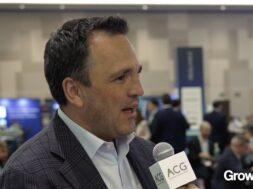Financing Portfolio Companies Through Coronavirus and Preparing Employees for What Comes Next—Day 3 of the ACG Member Summit
On the final day of ACG’s Member Summit, panels focused on how investors can support their portfolio companies through coronavirus, and how to prepare for a return to the office.

On the final day of ACG’s Member Summit, live-broadcast panel discussions addressed how investors can financially support their portfolio companies through the COVID-19 pandemic and how to prepare for a return to the office.
Speakers on the day’s first panel, sponsored by STNL Advisors, discussed their financing strategies as they support their companies through difficult straits.
Joshua Cherry-Seto, CCO and CFO of private equity firm Blue Wolf Capital Partners, shared how his firm has used bridge financing, allowed under its limited partnership agreements, to inject cash into its businesses to keep them running during the pandemic.
Another panelist, David Gershman, pointed to investments in essential services businesses that his firm, Trivest Partners, made prior to the COVID-19 outbreak that have provided stability within the portfolio.
For years, Gershman said Trivest has been hedging against a future economic decline by recession-proofing its portfolio with construction contractors, environmental services, engineering firms and other infrastructure-related businesses. In other words, “companies that would help kick start the economy,” he said.
Looking ahead, panelist Ted Koenig, president and CEO of middle-market lender Monroe Capital, said he’s concerned about the high levels of joblessness. “One in four working people in the U.S. is collecting unemployment right now. Unless that changes, I don’t believe we’re going to see a resurgence here in the near term,” he said, adding that many industries are going to suffer as a result.
Although federal programs have helped ensure liquidity for large public companies, they haven’t had the same effect on “non-investment-grade” markets, Koenig noted. Moreover, initiatives intended to aid midsize companies, like the Paycheck Protection Program, were “designed to protect employment, not businesses,” he added.
“One in four working people in the U.S. is collecting unemployment right now. Unless that changes, I don’t believe we’re going to see a resurgence here in the near term,”
Ted Koenig
President and CEO
Monroe Capital
Only 43% of attendees polled during the session said they received PPP assistance.
Still, the positive impact of federal lending programs on public markets might have a silver lining. “You could see a lot of corporate M&A of our midmarket businesses going forward,” Gershman said. “Which could be pretty exciting, because the corporations now have a ton of dry powder.”
To get through the rest of 2020 and beyond, Gershman says his firm is telling its 30 businesses to prioritize survival, rather than focusing on earlier growth objectives. “Our goal is, we want to have 30 portfolio companies in 2021,” he said.
Preparing Workforces for the Return to the Office
As the U.S. economy starts to re-open, business leaders and human resource experts are wondering how organizational structures will change after the pandemic ends.
During the Summit’s final panel, sponsored by Insperity, Greg Mansur, chief client officer of health clinic EHE Health, recommended that businesses implement a robust screening protocol before employees return to the office.
“Many organizations are now doing basic screening questionnaires and doing temperature taking,” he said, while others have developed apps and digital tools for tracking employee health.
Once employees are cleared to come into the office, leaders shouldn’t expect a return to normal levels of productivity. Mansur said employers should revise HR guidelines to address mental health ahead of reopening, and relax rules around sick leave and vacation time.
Pam Hendrickson, COO of private equity firm The Riverside Company, says some of her firm’s companies have updated policies around physical distancing and face coverings.
COVID-19 led some organizations to cut positions as they tried to cut costs, and companies are now asking if they’re left with the right people. Competence is one thing companies should consider—comfort with using technology is an emerging asset, Hendrickson said.
She emphasized the importance of cross-training, and having employees who can perform the job of two or three others. “Every position should have a backup,” she added.
Virtual workspaces also open up a new opportunity for companies to hire younger and more diverse workforces. “I hope we retain a lot of the positives from this,” Hendrickson said.

Benjamin Glick is Middle Market Growth’s associate editor.


